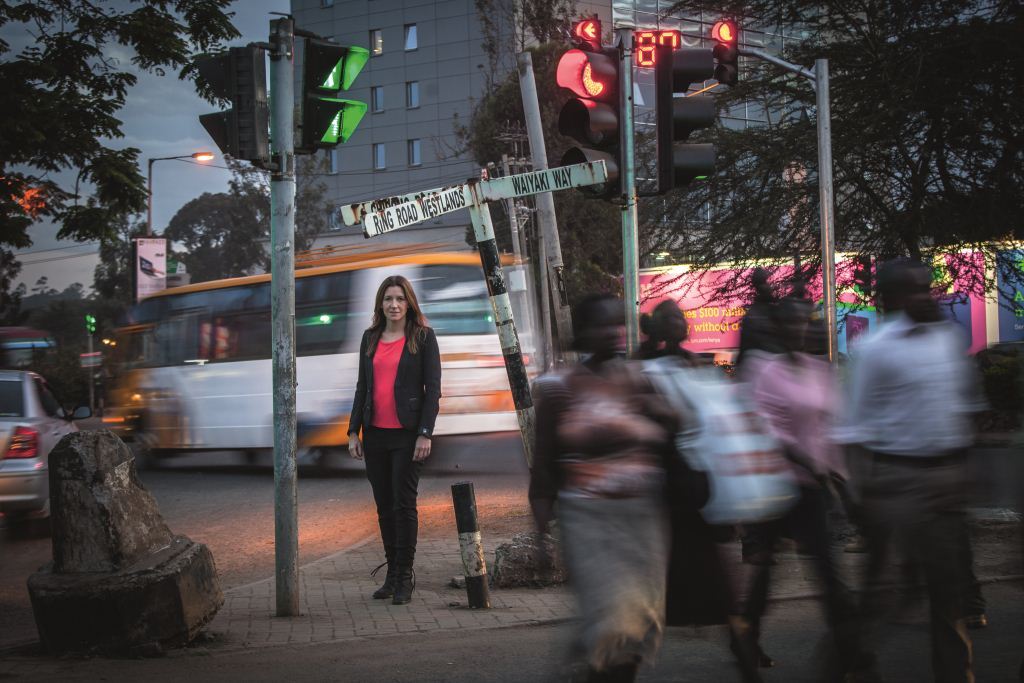While watching the CCTV footage of the Westgate attack in a
Nairobi, it is impossible to remain fixated and stare unblinking at the screen. How can we not look away when confronted with images of terrorists casually taking aim at civilian shoppers cowering in supermarket aisles.
It still seems impossible to fathom that the killers struck on a Saturday afternoon. A time for families, when parents pushed strollers and hauled groceries into shopping carts—trolleys that would be used hours later to evacuate the wounded and return the dead.
The sense of disbelief grew by the hour with the knowledge that a business, and most importantly, people we had invested in, had been caught up in the attack.
Swedfund claimed a 14% share in Deacons, a leading Kenyan retailer which owned four outlets in the mall as sub-anchors, including the popular Mr. Price fashion store that dominated the ground floor. More terrifyingly, the employees were barricaded behind steel shutters praying for salvation and texting what they believed would be their final words to loved ones.
Loading...
In total, 30 of Deacons’ staff were caught up in the attack. Against the odds, all of them survived. Unlike many of the other store managers, our own had simulated an emergency evacuation in their company training. In short, in a time of incredible adversity and terror, they knew what to do in the most unthinkable of circumstances.
The stories of survival among the Deacons’ team led me back to Kenya to meet them in a time of aftermath and painful reflection for the whole of East Africa.
As a former McKinsey consultant, I arrived in Nairobi accompanied by a throng of media focused more on the economic impact than the human toll of the crisis. Yet this went against everything I believe. With my recent international NGO background, I had come to my new role at Swedfund with the hope of contributing to Africa’s economic revival.
Around 600 million new jobs will be needed worldwide in the next 15 years to absorb a burgeoning youthful workforce, mainly in Asia and sub-Saharan Africa, according to a recent World Bank report.
The private sector will be the engine for this job creation, accounting for 90% of jobs in the developing world, but governments have a vital role to play by ensuring the right conditions are in place.
In our opinion, if you want to achieve inclusive growth you must not only make solid financial investments based on due diligence but, against traditional forms of investing, also improve working conditions, sustainability and solid corporate governance. The reaction of the staff at Deacons in a time of crisis taught us much about we need to know about this investment in people.
Swedfund’s decision to invest in retail represented a vote of faith for the nation’s middle class, whose emergence in key African countries cannot be overlooked. It is key in driving economic, social and political expectations. By 2025, annual consumption in emerging markets is estimated to rise to $30 trillion.
During my visit, it emerged that Deacons had lost up to 15% of its Kenyan business and lost $2 million in the attack. But this, of course, paled into insignificance when compared to the human toll of the attack.
Encountering the young women who had worked in the Mr. Price store, where as many as 40 shoppers had been saved by the quick thinking of the management, I was both troubled and inspired by their resilience. Some of the store workers texted their husbands and begged them to say goodbye to their young children. Others had persistent and violent nightmares. One told me she struggles each day with her own survival, knowing others who had died.
There is never an appropriate time to talk about investing or re-investing in the wake of an incident like Westgate, but for the Kenyan people it is clear that they want this on the agenda immediately. If incidents like the mall attack deter investors it could harm the country in the long term.
One of our roles is to defend investments in difficult places. In my opinion, there is no greater incentive to invest in job creation and youth by backing local businesses in nations prone to terror attacks.
By investing in economically-sound projects, we can achieve a catalytic effect. We can create jobs and help secure the future of youth and prevent their descent into extremism, like the young men who carried out the Westgate assault.
In Sweden, there are progressive firms like H&M and Ericsson looking towards inclusive growth on the continent but there is a need for more multinationals to invest and create jobs. Africa’s greatest strength could be its young and rapidly growing population.
Framed against this youthfulness, the prerequisites for expansion and development in Africa are better than in many other places on earth. According to a McKinsey report, the continent’s consumer-oriented businesses will grow by $400 billion by 2020. The bottom line? An investment in Africa can also be seen as an investment in youth.
What the Westgate attack teaches us is that enabling youth is key, but we also need to join forces. If we can show the way, we can make sure private business join NGOs in a global partnership to help job creation. We cannot look away from Africa like we can the stills on the CCTV screen.
Loading...
